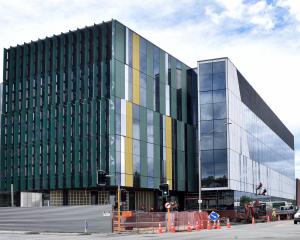
The new Dunedin hospital needs to be built and finished with the design and capacity earlier agreed.
Prior to retiring 20 months ago, I was involved with the planning of the new Dunedin hospital, chairing the Clinical Leadership Group, the group of senior clinicians responsible for helping channel the clinical voice into the planning process.
Clinicians, the staff of the project management office, the design team and many others put huge amounts of time and effort into the design that was at an advanced stage when I left. Significant compromises were made.
The design was good, in places excellent, but in my view, minimally sufficient to achieve efficient operation, quality care and innovation.
I am well aware of the need to contain costs and find ways to mitigate cost increases. As much as was reasonable of that work had been done without undue compromise in service delivery, efficiency, the scope of services or quality.
Spending more time and money now, to make further design and capacity compromises that undermine the work already done, makes little sense. The response to the recent horror in the North Island shows that, if necessary, money to build the hospital as previously designed could be found.
Amid all my concerns about the proposed re-design is a significant worry about staff welfare.

Already, at the time I finished working on the project, reductions in the size and conformation of staff facilities such as staff support areas, workspaces and meeting spaces had been imposed. A large part of these already inadequate facilities were housed in the pavilion building that is now proposed to be deleted.
Future delivery of services in the South depends on the ready recruitment to, availability of, morale of and functioning of our small specialist teams.
We need absolute reassurance for the future that at least equivalence in staff areas of space, quality and nearness to the clinical environment will be provided in a re-designed hospital.
Clinical staff challenged initial Ministry projections and data to convince planners about required theatre numbers and imaging requirements.
What was eventually decided was a compromise. To read that these agreed numbers are to be further reduced is extremely concerning.
The problems inherent in reductions of mental health beds for the elderly have been identified previously in the Otago Daily Times. In addition, reducing the numbers of single patient rooms reduces quality for patients and whanau, privacy and teaching.
Removing a link bridge will affect efficiency and inconvenience people. It is short-sighted.
I do not need to outline the potential impact on training students of all disciplines in a diminished hospital. That is obvious. I would think that the university and the polytechnic have cause for concern.
I have no political affiliations. That is not driving my concern.
I think a future government of any political persuasion will be forced to view these continued cutbacks as a significant blunder.











